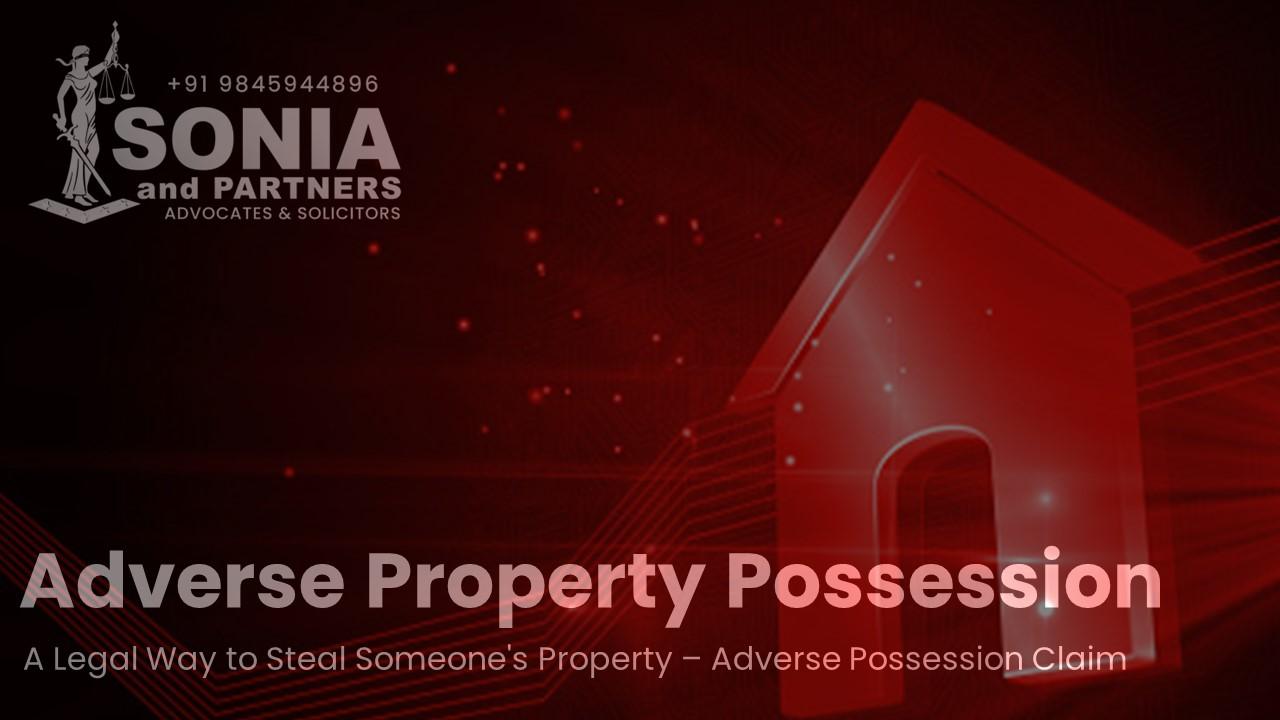Home Blog
Blog Adverse Possession Legal Theft of Property
Adverse Possession Legal Theft of Property

Adverse possession is a legal principle that allows a person to claim ownership of a property that they have occupied and used without the owner’s permission for a certain period of time. It is often referred to as “legal theft” because it can seem like someone is taking another person’s property without their consent. However, adverse possession is a legal concept that has been recognized in many countries for centuries, and it has its roots in the common law.
In this blog post, we will explore the concept of adverse possession and look at some case laws that have helped shape the legal understanding of this principle.
What is Adverse Possession?
Adverse possession is a legal doctrine that allows a person to claim ownership of a property that they have occupied and used as their own for a certain period of time, without the owner’s permission. The period of time required for adverse possession varies depending on the jurisdiction, but it is usually between 5 and 20 years.
In order to claim adverse possession, the person must show that they have been using the property openly, continuously, and without the owner’s permission. They must also show that they have been using the property in a way that is consistent with ownership, such as paying property taxes or making improvements to the property.
Adverse possession can only be claimed against the legal owner of the property. It cannot be claimed against someone who has a better title to the property, such as a person who has bought the property from the legal owner.
In India, adverse possession is governed by the Limitation Act, 1963. Section 27 of the Act states that a person who is in possession of a property for a continuous period of 12 years can acquire ownership of it. However, there are certain conditions that must be met in order for adverse possession to be claimed.
Firstly, the possession must be open, visible, and hostile to the true owner. Secondly, the possession must be continuous and uninterrupted for the entire period of 12 years. Lastly, the possession must be peaceful and without any interference from the true owner.
Despite these conditions, adverse possession is often seen as a way for people to take advantage of others and steal their property. However, there have been cases in the Supreme Court of India where adverse possession has been upheld.
One such case is the case of Ravinder Kaur Grewal v. Manjit Kaur & Ors (2019), where the Supreme Court upheld the principle of adverse possession. In this case, the plaintiff claimed ownership of a property that was in the possession of the defendant for over 30 years. The court found that the defendant had fulfilled all the conditions required for adverse possession and therefore had acquired ownership of the property.
Another case is the case of Sripati Chandrakanth Nadkarni v. Mohammed Ibrahim Yakub (2015), where the Supreme Court held that the principle of adverse possession cannot be defeated by merely proving that the possession was illegal or unauthorised. In this case, the plaintiff claimed ownership of a property that was in the possession of the defendant for over 12 years. The court found that the possession was open, visible, and hostile to the true owner and therefore upheld the principle of adverse possession.
In another case, Mohd. Yunus Khan v. Mushtaq Ahmad (2013), the Supreme Court held that a person claiming ownership through adverse possession must prove that they had the intention of possessing the property and that their possession was open, peaceful and uninterrupted for the entire period of 12 years. The Court also held that the person claiming ownership through adverse possession must show that they have been using the property as an owner and not as a trespasser.
In conclusion, adverse possession is a controversial legal concept in India that has been upheld by the Supreme Court in certain cases. While it may be seen as legal theft by some, it is important to note that there are certain conditions that must be met for adverse possession to be claimed.
Feel free to write to us at mail@lawyersonia.com or call +91 9845944896 if you wish to consult or discuss your matter. “Sonia and Partners” is a Boutique law firm led by Adv. Sonia Rajesh supported by a team of qualified and among the Best Lawyers in Bangalore practicing in the area of Family Law, Property Law, and Criminal defence serving Citizens of India, Overseas Indians, NRIs and Global International Clients.
 11:00 – 19:00
11:00 – 19:00